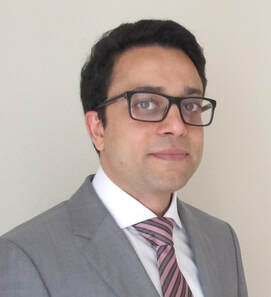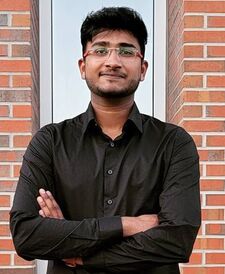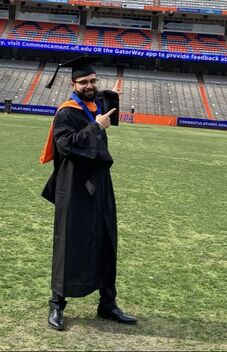Principal Investigator

Shahab Vahdat, Ph.D.
Assistant Professor, Director, Stroke NeuroRecovery Lab
Shahab joined the Bioengineering Department at the University of California Riverside (UCR) in 2024. Prior to that, he served as an Assistant Professor of Applied Physiology and Kinesiology at the University of Florida from 2019-2024. He was a postdoctoral scholar in the Departments of Neurology and Neurological Sciences, and Neurosurgery at Stanford University, where he studied neurotreatment and pathophysiology of ischemic stroke in rodent models. His earlier postdoctoral fellowship was at University of Montreal, focused on of spinal cord functional neuroimaging and electrophysiology in humans. He received his PhD degree in the field of human motor neuroscience from McGill University, Canada, in 2012. He obtained his MSc and BSc degrees in Biomedical and Electrical Engineering from Sharif University of Technology and University of Tehran. His areas of research include neural circuits and neurotreatment in ischemic stroke, with a particular focus on brainstem and spinal cord circuitry.
Assistant Professor, Director, Stroke NeuroRecovery Lab
Shahab joined the Bioengineering Department at the University of California Riverside (UCR) in 2024. Prior to that, he served as an Assistant Professor of Applied Physiology and Kinesiology at the University of Florida from 2019-2024. He was a postdoctoral scholar in the Departments of Neurology and Neurological Sciences, and Neurosurgery at Stanford University, where he studied neurotreatment and pathophysiology of ischemic stroke in rodent models. His earlier postdoctoral fellowship was at University of Montreal, focused on of spinal cord functional neuroimaging and electrophysiology in humans. He received his PhD degree in the field of human motor neuroscience from McGill University, Canada, in 2012. He obtained his MSc and BSc degrees in Biomedical and Electrical Engineering from Sharif University of Technology and University of Tehran. His areas of research include neural circuits and neurotreatment in ischemic stroke, with a particular focus on brainstem and spinal cord circuitry.
Ph.D. Students

Vishwas Jindal
Applied Physiology and Kinesiology
Vishwas is a first year Ph.D. student in the Applied Physiology and Kinesiology Department at the University of Florida. He has graduated with a B.S. and M.S. in Biomedical Engineering and has worked in the industry prior to starting his PhD. He is keen on learning the deep-rooted concepts of Neural System and Neuroimaging and aims to develop novel engineering solutions to problems associated with neurological limitations and dysfunctions.
In his spare time, he enjoys cooking, exploring the outdoors and binging on Bollywood movies.
His research primarily involves determining the neural and behavioral mechanism of intact and lesioned mice undergoing motor skill learning and optogenetic stimulation.
Applied Physiology and Kinesiology
Vishwas is a first year Ph.D. student in the Applied Physiology and Kinesiology Department at the University of Florida. He has graduated with a B.S. and M.S. in Biomedical Engineering and has worked in the industry prior to starting his PhD. He is keen on learning the deep-rooted concepts of Neural System and Neuroimaging and aims to develop novel engineering solutions to problems associated with neurological limitations and dysfunctions.
In his spare time, he enjoys cooking, exploring the outdoors and binging on Bollywood movies.
His research primarily involves determining the neural and behavioral mechanism of intact and lesioned mice undergoing motor skill learning and optogenetic stimulation.

Sushain Kaul
Applied Physiology and Kinesiology
Sushain is currently a Ph.D. student in the Sensorimotor Plasticity Lab. He joined our research team in 2019 while doing his Masters in Biomedical Engineering. His time in the lab helped him develop an ardent interest in Neuroscience, especially in the use of optogenetics for stroke rehabilitation. Hence, after graduating in 2021, he decided to continue his research in the lab as a Ph.D. student in the department of Applied Physiology and Kinesiology (APK). His current research focuses on studying various spinal pathways involved in motor control and their potential to help in stroke recovery using optogenetic stimulation.Other than research, Sushain loves to travel around the world and take pictures. He also loves to go on bike trails and outdoor adventures.
Applied Physiology and Kinesiology
Sushain is currently a Ph.D. student in the Sensorimotor Plasticity Lab. He joined our research team in 2019 while doing his Masters in Biomedical Engineering. His time in the lab helped him develop an ardent interest in Neuroscience, especially in the use of optogenetics for stroke rehabilitation. Hence, after graduating in 2021, he decided to continue his research in the lab as a Ph.D. student in the department of Applied Physiology and Kinesiology (APK). His current research focuses on studying various spinal pathways involved in motor control and their potential to help in stroke recovery using optogenetic stimulation.Other than research, Sushain loves to travel around the world and take pictures. He also loves to go on bike trails and outdoor adventures.
Undergraduate Students
Jason Veizaj (Biology)
Zoë Schuler (APK)
Erika de Jesus (APK)
Krystina M Masihy (APK)
Jenavieve King (APK)
Dhruv Sakaria (APK)
Zoë Schuler (APK)
Erika de Jesus (APK)
Krystina M Masihy (APK)
Jenavieve King (APK)
Dhruv Sakaria (APK)
Alumni
Pouneh Baniasad (PhD student, Applied Physiology and Kinesiology, 2021-2023)
Cho-Lun Chaing (MS, Biomedical Engineering, 2020-2021)
Jasmine Singh (MS, Biomedical Engineering, 2020-2021)
Shailini Nigam (MS, Biomedical Engineering, 2020)
Undergrads: Anthony Avila (APK), Caeley Reever (Biology), Claudia Galindo (APK), Jack Callaway (APK),
Keval Patel (APK), Parker Smith (APK), Rushabh Shah (APK), Dahlia Wrubluski (APK)
Cho-Lun Chaing (MS, Biomedical Engineering, 2020-2021)
Jasmine Singh (MS, Biomedical Engineering, 2020-2021)
Shailini Nigam (MS, Biomedical Engineering, 2020)
Undergrads: Anthony Avila (APK), Caeley Reever (Biology), Claudia Galindo (APK), Jack Callaway (APK),
Keval Patel (APK), Parker Smith (APK), Rushabh Shah (APK), Dahlia Wrubluski (APK)
